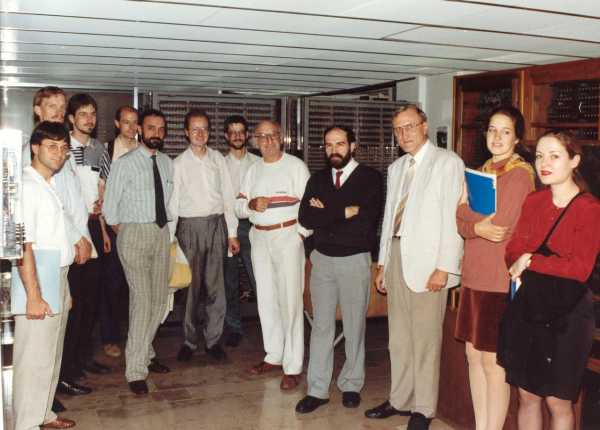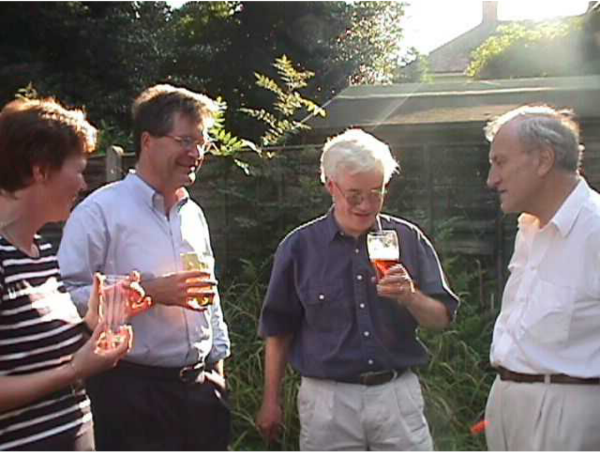"Managers who know how to program are better managers" - Part 2/2
Professor emeritus Walter Gander was a strong advocate for computer science since the 80s. He was committed to independent computer science teaching in Swiss schools, supported women in CS and participated in development projects abroad. In the second part of this interview, Walter Gander tells us about his work as head of department, his long-term book projects and how copy & paste was done in the 80s.
Video series: Part 2/2
In this continuing conversation, Walter Gander and Lukas Fässler talk about independent computer science teaching in Swiss schools: a long-standing and passionate project of Gander's. In the process, they discuss the importance of algorithmic thinking and the hurdles that had to be faced at the time to advance this cause. Another project close to Walter Gander's heart was the advancement of women in computer science. He was already committed to this in the 1990s and, among other things, founded a women's group for computer science internships, the basis for today's CSNOW.

In this forty-minute conversation, he also provides very personal insights into his life: during World War II, his family was forced to flee the Swiss colony on the Black Sea. Walter Gander was born in the bombardment of Poznan in 1944 before he and his mother finally arrived in Biel. Gander's interest in mathematics was no accident: his mother had an extraordinary talent, which she passed on to her sons. His lifelong enthusiasm for mathematics, and later for computer science, led Gander to write several books. In the second part of the interview, the retired professor also talks about these projects and the people behind them.
Professor emeritus Walter Gander was a faculty member of the Department of Computer Science from 1987 to 2009. In this time, he shaped both ETH Zurich and Switzerland. In the first part of our interview series, he spoke to Senior Scientist Lukas Fässler, his former doctoral student, about the beginnings of D-INFK, the interesting crossroads of his personal and professional life, and the establishment of a dynamic science that plays an essential role in all aspects of our society today.
Lukas Fässler is a Senior Scientist with a focus on teaching at the Department of Computer Science. He started his doctorate at Gander's Institute for Computational Science 20 years ago. Walter Gander and Lukas Fässler share not only a common research interest but also a friendship.



Mentions from the video
- external page Prof. em. Åke Björck, Linköping University
- external page Prof. em Gene Golub, Stanford University
- external page Prof. em. Jiří Hřebíček, Masaryk University
- external page Johann Joss
- external page Prof. em. William Kahan, University of California, Berkeley
- external page Prof. em. Donald Knuth, Stanford University
- external page Prof. em. Christian Reinsch, TU München
- external page CRA Conference at Snowbird
- external page CSCS Swiss National Supercomputing Centre
- external page Hongkong Baptist University
- external page Informatics Europe
- external page Kantonsschule Rämibühl
- external page Mendel University, Brno
- Network of Women in Computer Science (CSNOW), formerly Frauenförderung
- external page Stanford University
- external page University of Zurich (UZH)
40 years D-INFK
The study programme and the Department of Computer Science at ETH Zurich are celebrating their fortieth anniversary this year. On this occasion, a series of interviews with former professors of the department, who were leading forces in the foundation and development of D-INFK, was created.